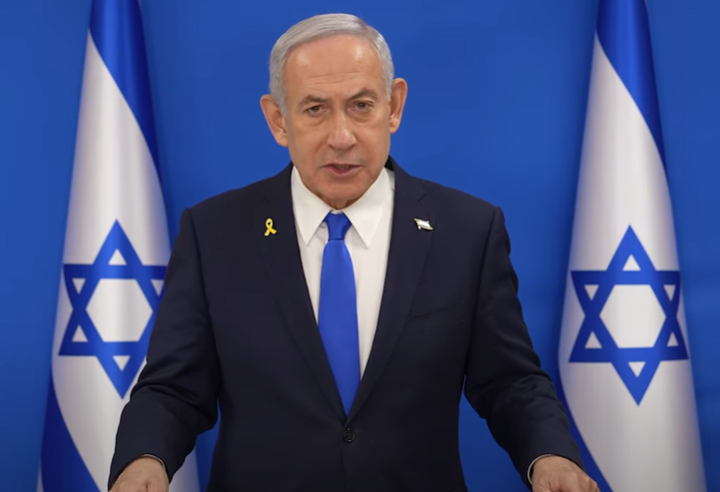Britain has warned Israel that it will recognize the State of Palestine by September unless Israel takes major steps to end the humanitarian crisis in Gaza. The move, aligned with France’s stance, could make the UK one of the first G7 nations to recognize Palestinian statehood. Israel has condemned the decision, calling it a reward for Hamas, while the US has distanced itself from the move. Meanwhile, American public support for Israel’s military actions in Gaza is declining, and divisions are emerging within the Republican Party over the ongoing conflict.
UK Warns Israel: Recognize Palestine by September or Face Diplomatic Shift
In a significant geopolitical development, Britain has issued a stern warning to Israel, declaring that it will formally recognize the State of Palestine in September unless Israel takes very substantive steps to alleviate the worsening humanitarian situation in Gaza. The move marks a bold shift in UK foreign policy and could have far-reaching implications for the Middle East peace process and international diplomatic relations.
This dramatic development came after British Prime Minister Keir Starmer recalled his cabinet from recess for urgent discussions on the dire conditions in Gaza. Starmer’s plan reportedly includes allowing the United Nations to resume the delivery of humanitarian aid and reaffirming Britain’s opposition to any annexation of territories in the West Bank. Starmer’s initiative is seen as part of a broader strategy aimed at achieving a lasting peace in the region.
The UK’s message to Hamas remains uncompromising: the militant group must immediately release all hostages, agree to a ceasefire, disarm completely, and accept that they will have no role in the future governance of Gaza.
In response, Israel has strongly condemned the British ultimatum. Foreign Minister Israel Katz described the UK’s stance as a “reward for Hamas” and warned that it undermines ongoing efforts to secure a ceasefire and the release of Israeli hostages. Israeli Prime Minister Benjamin Netanyahu echoed the criticism, accusing Starmer of punishing the victims of Hamas’s “monstrous terrorism” and rewarding the perpetrators. Netanyahu warned that a “jihadist state” established on Israel’s borders would eventually pose a threat to Britain and other Western nations.
The UK’s potential recognition of Palestinian statehood would be a landmark move, as it would make Britain—alongside France, which has reportedly committed to a similar path—the first G7 nation to take such a step. This could set a precedent for other Western allies and may increase pressure on Israel diplomatically.
Meanwhile, the United States has made it clear that it does not intend to follow the UK or France in recognizing a Palestinian state in the near future. The US State Department stated that while it is not in the business of censoring international discourse, it has no immediate plans to change its longstanding position on Palestinian statehood.
US President Donald Trump, who recently met Starmer in Scotland, also weighed in on the issue. Trump said he had not discussed Palestinian recognition with Starmer, but he strongly opposed the idea. “You could make the case that you’re rewarding Hamas if you do that, and I don’t think they should be rewarded,” Trump said, reaffirming his stance that any recognition at this point would be counterproductive.

Amid this diplomatic upheaval, American public sentiment toward Israel’s military operations in Gaza is also shifting. A new Gallup poll released this week revealed that only 32% of US adults currently approve of Israel’s actions in Gaza—a sharp decline from previous figures. Furthermore, about half of Americans now view Prime Minister Netanyahu unfavorably, marking the most negative public perception he has ever faced in the United States.
This growing skepticism is not limited to the American public. A significant divide is also emerging within the Republican Party. Congresswoman Marjorie Taylor Greene, a vocal ally of Donald Trump, has broken ranks by publicly calling Israeli actions in Gaza a “genocide.” In a strongly worded social media post, Greene condemned both the October 7th Hamas attacks and the ongoing humanitarian crisis in Gaza. She also criticized one of her Republican colleagues who suggested that Palestinians should be starved until all hostages are released.
Greene’s comments represent a rare rebuke within a party traditionally known for its unwavering support of Israel and signal a possible ideological shift. Some observers suggest her remarks may open the door for broader dissent among Republicans regarding U.S. policy in the Middle East.
Despite mounting criticism from some factions, President Trump has acknowledged the food crisis in Gaza and stressed the need for urgent humanitarian aid. However, he maintained his trust in Israel’s ability to manage the aid distribution process—even as Israeli officials face international backlash for alleged obstruction of humanitarian efforts.
As tensions escalate on all fronts—diplomatic, political, and humanitarian—the coming weeks will be crucial in determining whether the UK and other global powers push forward with recognizing Palestinian statehood and how such decisions reshape the fragile dynamics of the Israeli-Palestinian conflict.

